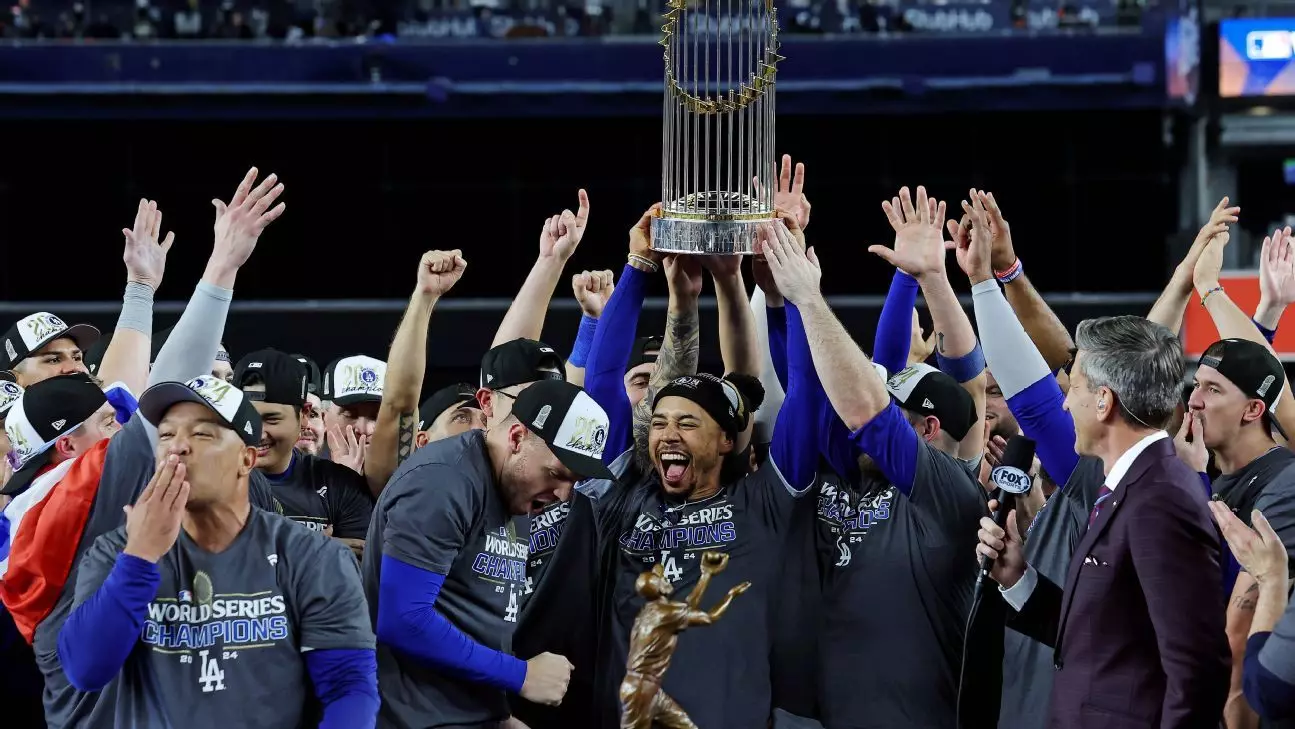The Los Angeles Dodgers, crowned champions of the 2024 World Series, have received a prestigious invitation to visit the White House on April 7. This outing comes shortly before they kick off a series against the Washington Nationals, marking an occasion to celebrate their hard-fought victory in the realm of Major League Baseball. For the players and the management alike, the invitation serves as an affirmation of their dedication and success in the sport, as emphasized by Dodgers manager Dave Roberts. Despite the informal nature of the discussions within the team regarding the visit, he acknowledged the monumental significance of being invited to the seat of the American presidency. Such moments symbolize not only personal achievement but also the broader cultural importance of sports in uniting a nation.
The Legacy of Jackie Robinson
This visit carries an added weight given its timing and the backdrop against which it unfolds. Recently, a story about Jackie Robinson—a pivotal figure in baseball history and the first African American to break the color barrier—was temporarily removed from the Department of Defense’s website. Robinson, a second lieutenant in the U.S. Army during World War II, is celebrated not just for his athletic prowess but also for his profound impact on civil rights. The seeming purging of Robinson’s legacy amid political maneuvers highlights a tension between progress and regression. As Roberts noted, he was unaware of the incident surrounding the Robinson piece, leaving many to ponder why essential narratives about diversity and inclusion sometimes fall by the wayside in favor of politically motivated cleanups of historical records.
The Dichotomy of Loyalty and Ideology
Roberts has been known for his outspoken views on the need for diversity within athletics, particularly in coaching and front office roles. This advocacy underscores a larger conversation not just about baseball, but about American society as a whole. The interplay of sports and social issues is deeply interwoven, and the Dodgers’ celebration at the White House serves as a reminder of the complexities surrounding these subjects. While Roberts initially expressed reluctance to attend the White House if the Dodgers had won the championship during the Trump presidency, he has since shifted his stance. His evolution from skepticism to celebration also reflects a deeper psychological landscape of loyalty to the team versus individual convictions. The act of visiting the White House is not merely a gesture of political alignment but an acknowledgment of the historical significance American presidents hold in relation to public achievements.
Navigating Political Landscape Dilemmas
The political atmosphere enveloping sports teams today presents challenges that go beyond the diamond. The Dodgers’ previous visit to the White House came during President Biden’s tenure, showcasing the dynamic relationship sports teams have with different administrations. How these events resonate within the sports community and among fans often hinges on an array of opinions and sentiments reflective of national mood swings. As the nation grapples with the implications of diversity, equity, and inclusion, these themes loom large in the narrative surrounding the Dodgers’ triumphs. The contrast between their career highs and the socio-political low points serves as fodder for public discourse.
Community Engagement and Responsibility
Beyond their championship accolades, the Dodgers’ involvement with philanthropic initiatives, particularly regarding California’s wildfire recovery, demonstrates their commitment to community engagement. As highlighted by their chairman Mark Walter and part-owner Earvin “Magic” Johnson, efforts to support rebuilding endeavors underscore a sense of responsibility that transcends sports. Rather than merely celebrating their victory in isolation, the Dodgers seem poised to leverage their platform for social good. The juxtaposition of their sports excellence against the real-world challenges facing their community suggests a powerful message about purpose-driven leadership in athletics.
In a time where the line between sports and politics appears increasingly blurred, the Dodgers’ upcoming White House visit will reverberate beyond mere fanfare. It showcases the profound intersections of culture, history, and social responsibility, ultimately serving as an example of how the world of sports can reflect broader societal values and aspirations.


Leave a Reply